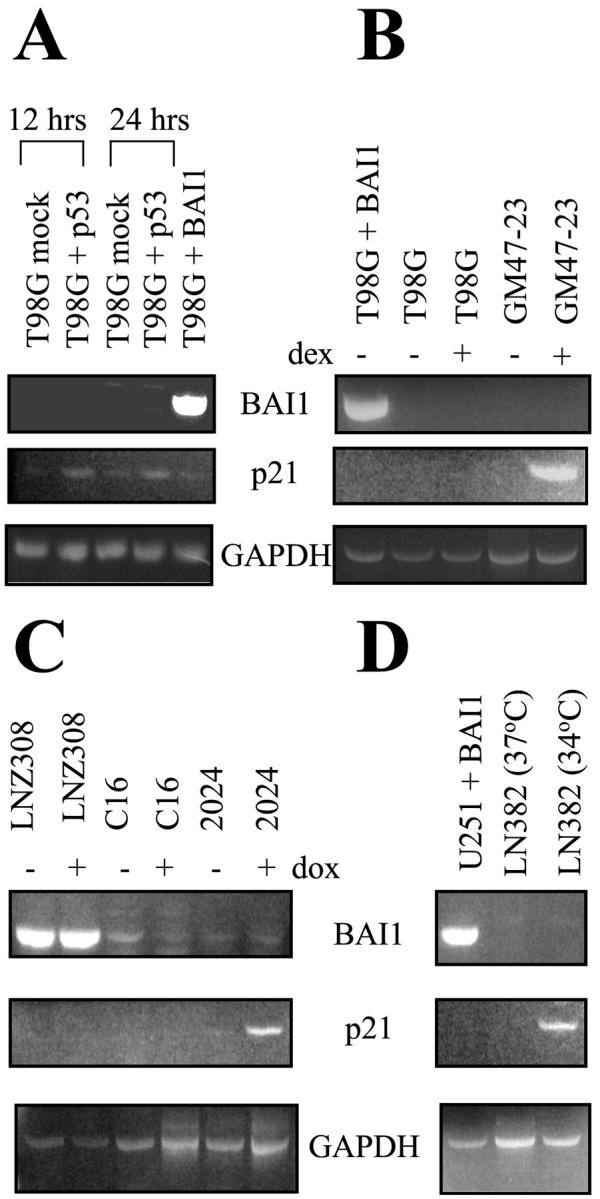Figure 3.

BAI1 mRNA is not induced by p53 in glioma cell lines. Induction of BAI1 mRNA by p53 was evaluated by RT-PCR as detailed in the Materials and Methods section. Induction of p21/CDKN1A mRNA by p53 was used as a positive control. Expression of GAPDH mRNA was used as a control for RNA amounts and integrity. A: T98G cells were transiently transfected with wild-type p53 cDNA. The cells were harvested at 12 hours and 24 hours post-transfection and analyzed for BAI1 mRNA induction of expression by p53 using RT-PCR. T98G cells transfected with BAI1 cDNA or mock-transfected cells were used as positive and negative controls, respectively. B: Activation of wild-type p53 activity in GM 47–23 cells by dexamethasone (1 μmol/L for 18 hours). GM 47–23 is a clone derived from T98G glioma cells and contains a wild-type p53 cDNA under a dexamethasone-responsive promoter. T98G parental cells were used as a negative control and T98G transiently transfected with BAI1 cDNA as a positive control. C: Activation of wild-type p53 in 2024 cells by doxycycline 2024 cells contain a wt TP53 gene regulated by doxycycline-responsive promoter and are derived from C16 cells (which are a clone of LNZ308 cells expressing the rtTA transactivator). WT p53 was induced by treating the cells with doxycycline (2 μg/ml) for 24 hours and the cells were then evaluated for BAI1 mRNA induction by RT-PCR. D: LN382 cells harboring a temperature-sensitive p53 mutant were grown at either 37°C or at 34°C (permissive temperature) for 24 hours and analyzed for BAI1 mRNA induction. U251MG cells stably transfected with BAI1 cDNA were used as a positive control.
